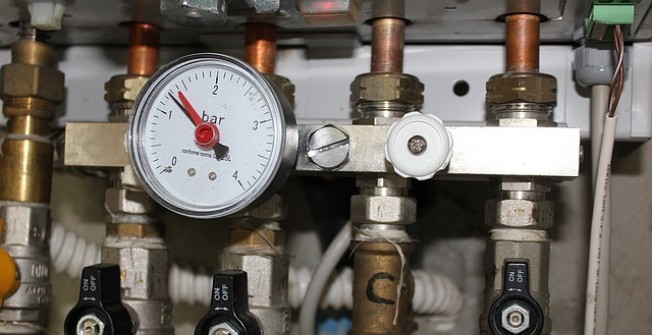Oil Boilers in
Today many people rely on oil boilers as their principal heating source for their businesses and homes. And while the heating process of each type of boiler is different than the others, all boilers’ main concern is to simply keep the units and their water warm. Oil boilers, although they are not the cheapest type of boiler one could purchase, they do have their perks such as having easier storage capability than the similar gas boiler.
As you could have probably guessed, it is important that any maintenance or issues that may arise with your oil boiler should be notified and taken care of by a certified heating technician as failure to do so could result in hardware malfunction or serious injury. This being said, it never hurts to have a basic understanding of how your home system works, aswell as the workings of our combi boilers.
Oil Burner: How It Works
- Similar to all other systems, the thermostat is what will turn on or off the oil boiler depending on the desired temperature of the house. If the temperature drops below the designated temp, the thermostat will cause the boiler to turn on and raise the temperature.
- Once the boiler is kicked on, oil is sent to the burner after it passes through a filter. There it is converted into a mixture of both air and oil which can then be ignited by the combustion chamber. Very quickly, the combustion chamber heats up and will provide the heat that will get sent out to the rest of the house.
- In a hot air system, the air will sit in the heat exchanger where it will collect heat from the combustion chamber which can then be distributed to the rest of the house.
- In a hot water system, instead of air, water will absorb the heat from the combustion chamber so that it can be circulated throughout the home through a pump.
- Any remaining emissions from the combustion process are never sent out into the homes air, rather they are sent up the flue. This way, an entire home may be heated to a desired temperature with minimal danger or cost.
Essential Maintenance Tips for using Oil Boilers
- Whether you have just purchased your first oil boiler, or are simply looking to do some maintenance, we know many people feel intimidated by their complexity. Therefore, the number one way to familiarise yourself with it is to read through your owner’s manual. This is a basic but often overlooked part of owning any boiler and can answer many questions you might already have and save much time and confusion in the long run.
- During summer months oil boilers are rarely needed, however when they are not being used as much they have a tendency to build up dirt and scum from sitting idle. A great way to optimise your boilers efficiency during the warmer months is to turn it up to full blast for a period of ten to fifteen minutes. Do this at least once a month, and you will help keep your boiler working at its optimal capacity.
